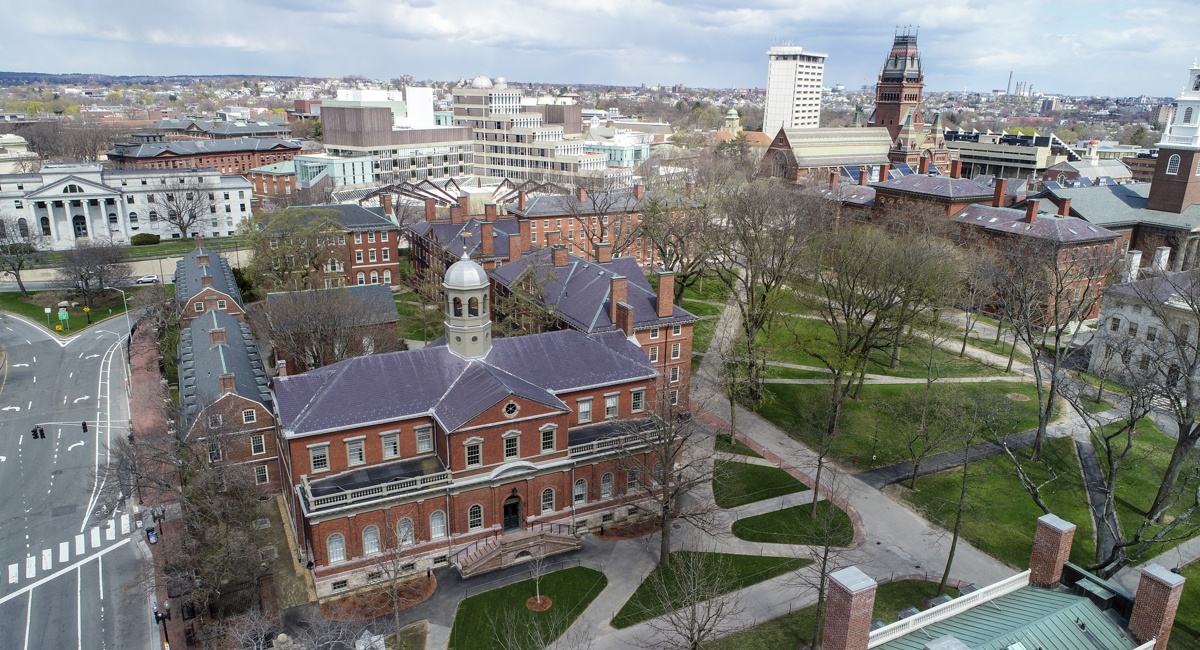Boston University ranking US News & World Report sets the stage for this enthralling narrative, offering readers a glimpse into a story that is rich in detail and brimming with originality from the outset.
Boston University, a prestigious institution nestled in the heart of the vibrant city of Boston, consistently ranks among the top universities in the United States according to US News & World Report. This ranking reflects the university’s commitment to academic excellence, groundbreaking research, and a dynamic campus culture that fosters intellectual curiosity and personal growth. From its renowned faculty and cutting-edge facilities to its diverse student body and extensive alumni network, Boston University offers a transformative educational experience that prepares graduates for success in a rapidly evolving world.
Overall Ranking and Reputation
Boston University’s ranking in the US News & World Report is a significant indicator of its academic standing and reputation. It reflects the university’s commitment to providing a high-quality educational experience, attracting top faculty, and fostering research excellence.
The US News & World Report employs a comprehensive methodology to rank universities, taking into account various factors. These include academic reputation, graduation rates, faculty resources, student selectivity, financial resources, and alumni giving.
National Universities Ranking, Boston university ranking us news
Boston University’s ranking in the National Universities category is a testament to its academic excellence. It consistently ranks among the top universities in the country, reflecting its strong reputation for academic rigor, research, and innovation.
The US News & World Report’s ranking methodology considers various factors, including:
- Academic Reputation: This is a significant factor, based on peer assessments from academics across the country.
- Graduation and Retention Rates: High graduation and retention rates indicate the university’s ability to support students’ success.
- Faculty Resources: The university’s faculty-to-student ratio, class sizes, and faculty credentials are considered.
- Student Selectivity: This includes the university’s acceptance rate, SAT/ACT scores, and high school GPA of admitted students.
- Financial Resources: The university’s per-student spending on instruction, research, and other resources is considered.
- Alumni Giving: Alumni support demonstrates the university’s impact on its graduates and their commitment to its future.
Reputation’s Impact on Ranking
Boston University’s strong reputation plays a crucial role in its overall ranking. Its reputation is built on a history of academic excellence, research innovation, and a commitment to providing a well-rounded educational experience. This reputation attracts top students, faculty, and researchers, further enhancing the university’s academic standing.
Academic Excellence and Programs
Boston University is widely recognized for its strong academic programs, attracting students and faculty from across the globe. The university’s commitment to research and innovation is evident in its impressive rankings and the achievements of its faculty and students.
Top-Ranked Academic Programs
Boston University boasts a diverse range of academic programs, many of which are ranked among the best in the nation.
- The College of Engineering consistently ranks among the top 50 engineering schools in the US News & World Report rankings. Its programs in biomedical engineering, electrical engineering, and computer science are particularly well-regarded.
- The School of Medicine is renowned for its research and clinical care, consistently ranking among the top 50 medical schools in the US News & World Report rankings. The school is home to several leading-edge research centers, including the National Emerging Infectious Diseases Laboratories.
- The School of Law is a highly respected institution, ranked among the top 50 law schools in the US News & World Report rankings. Its programs in intellectual property law, tax law, and international law are particularly strong.
- The College of Arts & Sciences offers a wide range of undergraduate and graduate programs in the humanities, social sciences, and natural sciences. Several of its departments, including the Department of Economics and the Department of History, are ranked among the top 50 in the nation.
Comparison of Undergraduate and Graduate Programs
Boston University’s undergraduate and graduate programs are both highly regarded, but they differ in their emphasis and focus.
- Undergraduate programs at Boston University are known for their strong liberal arts foundation, providing students with a broad range of knowledge and skills. The university offers a wide variety of majors and minors, allowing students to tailor their education to their individual interests.
- Graduate programs at Boston University are highly specialized, focusing on advanced research and professional training. The university offers a wide range of master’s and doctoral programs in a variety of fields, including engineering, medicine, law, business, and the arts and sciences.
Strengths and Weaknesses of Academic Offerings
| Strengths | Weaknesses |
|---|---|
| Wide range of academic programs | High tuition costs |
| Strong faculty and research opportunities | Large class sizes in some introductory courses |
| Excellent career services and alumni network | Limited access to on-campus housing for graduate students |
| Vibrant campus culture and diverse student body | Competition for resources and opportunities |
Recent Research Breakthroughs and Innovations
Boston University faculty are at the forefront of research and innovation, making significant contributions to their respective fields.
- In 2023, a team of researchers at the School of Medicine developed a new gene therapy for Duchenne muscular dystrophy, a debilitating genetic disorder. The therapy showed promising results in clinical trials, offering hope for a cure for this devastating disease.
- Researchers at the College of Engineering have developed a new type of solar cell that is more efficient and cost-effective than traditional solar cells. This innovation has the potential to revolutionize the renewable energy industry.
- A team of scientists at the College of Arts & Sciences made a groundbreaking discovery about the origins of the universe. Their research, published in the prestigious journal Nature, provides new insights into the early stages of the Big Bang.
Faculty and Research

Boston University boasts a renowned faculty, comprised of leading scholars, researchers, and innovators across diverse fields. Their expertise and dedication contribute significantly to the university’s academic excellence and research impact.
Faculty Expertise
The faculty at Boston University is highly accomplished, with a distinguished record of scholarly contributions. They are experts in their respective fields, holding prestigious awards and recognitions. For instance, the university has multiple Nobel laureates, MacArthur Fellows, and National Academy of Sciences members among its faculty. This exceptional talent pool fosters an intellectually stimulating environment that nurtures student learning and research endeavors.
Research Infrastructure and Facilities
Boston University provides an exceptional research infrastructure, supporting cutting-edge research across various disciplines. The university houses state-of-the-art facilities, including:
- The Charles River Campus: This central campus is home to a wide range of research centers and institutes, such as the Center for Computational Science and Engineering, the Institute for Global Health, and the National Emerging Infectious Diseases Laboratories.
- The Medical Campus: Located in the heart of Boston’s medical district, this campus is home to the Boston University School of Medicine, the School of Public Health, and the renowned Boston Medical Center. This location offers unique opportunities for collaborative research in medicine and public health.
- Research Libraries and Archives: Boston University Libraries provide access to extensive collections of books, journals, and digital resources, supporting research across various disciplines. The Mugar Memorial Library, the central library on the Charles River Campus, is a hub for scholarly research, offering a wide range of services and resources.
Prominent Faculty and Research Contributions
Boston University’s faculty has made significant contributions to various fields, advancing knowledge and impacting society. Some notable faculty members and their research contributions include:
- Dr. Howard Stringer: Former CEO of Sony Corporation, Dr. Stringer’s research focuses on the intersection of technology, media, and culture. His work has significantly influenced the development of digital media and entertainment industries.
- Dr. Michael Ignatieff: Former Leader of the Liberal Party of Canada, Dr. Ignatieff is a renowned historian and political scientist. His research on human rights and international relations has shaped global discourse on these critical issues.
- Dr. Robert Langer: A pioneer in the field of biomaterials, Dr. Langer’s research has led to groundbreaking innovations in drug delivery, tissue engineering, and regenerative medicine. His work has had a profound impact on the treatment of various diseases.
Impact of Research on Various Fields
Boston University’s research has had a profound impact on various fields, leading to advancements in technology, medicine, social sciences, and the humanities. For example, the university’s research in:
- Biomedical Engineering: Has led to the development of innovative therapies and treatments for diseases such as cancer, Alzheimer’s, and Parkinson’s. The university’s researchers have made significant contributions to the development of gene therapy, tissue engineering, and drug delivery systems.
- Computer Science: Has resulted in advancements in artificial intelligence, cybersecurity, and data science. The university’s researchers are at the forefront of developing new algorithms and technologies that are transforming various industries.
- Public Health: Has contributed to improving global health outcomes by addressing critical issues such as infectious diseases, chronic diseases, and health disparities. The university’s researchers are actively involved in developing new vaccines, therapies, and public health interventions.
Student Life and Campus Culture
Boston University boasts a vibrant and diverse student body, creating a dynamic and engaging campus culture. With students from all over the world, representing a wide range of backgrounds, perspectives, and interests, the university fosters an environment that encourages intellectual curiosity, cultural exploration, and personal growth.
Student-Led Initiatives and Organizations
Student-led initiatives and organizations play a crucial role in shaping the campus culture at Boston University. These groups provide opportunities for students to pursue their passions, connect with like-minded individuals, and contribute to the university community.
- The Student Government of Boston University (SGBU) represents the student body and advocates for their interests. It works closely with the university administration to address student concerns and improve campus life.
- The Boston University Programming Board (BUPB) organizes a wide range of events and activities throughout the year, including concerts, speakers, and social gatherings.
- The Boston University Arts Initiative (BUAI) supports student artists and provides opportunities for them to showcase their work through exhibitions, performances, and workshops.
- The Boston University Athletics program offers a variety of sports teams for students to participate in, fostering teamwork, discipline, and a sense of community.
Resources and Support Services
Boston University provides a comprehensive range of resources and support services to ensure student success and well-being. These services are designed to address the diverse needs of students, from academic assistance to mental health support.
- The Boston University Center for Career Development offers career counseling, job search assistance, and internship opportunities to help students prepare for their future careers.
- The Boston University Student Health Services provides comprehensive health care services, including medical, dental, and mental health care.
- The Boston University Office of Student Life offers a variety of programs and services to support student development and engagement, including leadership development, community service opportunities, and student organizations.
- The Boston University Libraries provide students with access to a vast collection of books, journals, and digital resources, supporting their academic research and intellectual exploration.
Extracurricular Activities
Extracurricular activities play a vital role in shaping the student experience at Boston University, providing opportunities for personal growth, skill development, and social connection. Students can choose from a wide range of activities, from sports and clubs to volunteer work and internships.
- The Boston University Symphony Orchestra offers students the opportunity to perform with a renowned orchestra, developing their musical skills and appreciation for classical music.
- The Boston University Debate Team provides students with a platform to hone their critical thinking, public speaking, and research skills through competitive debate.
- The Boston University Volunteer Center connects students with local organizations, allowing them to make a positive impact on the community and gain valuable experience in service learning.
- The Boston University Internship Program provides students with opportunities to gain practical experience in their field of interest, building their resumes and professional networks.
Admissions and Financial Aid
Boston University’s admissions process is selective, emphasizing academic excellence and a holistic review of applicants. To be considered for admission, prospective students must meet specific requirements and demonstrate a strong commitment to their academic pursuits.
Admissions Process and Requirements
The admissions process at Boston University involves a comprehensive evaluation of applicants’ academic records, standardized test scores, extracurricular activities, essays, and letters of recommendation. Applicants are encouraged to submit their applications through the Common Application or Coalition Application, which allows them to apply to multiple colleges simultaneously.
- Academic Requirements: Applicants must have a strong academic record, including a high school GPA, challenging coursework, and a rigorous curriculum.
- Standardized Test Scores: While Boston University is test-optional, standardized test scores, such as the SAT or ACT, can still be considered as part of the admissions process.
- Essays and Letters of Recommendation: Applicants are required to submit personal essays that showcase their writing abilities, interests, and experiences. Letters of recommendation from teachers, counselors, or mentors provide insights into the applicant’s character and potential.
- Extracurricular Activities: Boston University values well-rounded individuals and encourages applicants to participate in extracurricular activities, such as sports, clubs, community service, or leadership roles.
- Interviews: While not required, interviews can provide applicants with an opportunity to demonstrate their interest in Boston University and discuss their academic goals.
Financial Aid
Boston University offers a variety of financial aid options to help students afford their education. These options include scholarships, grants, loans, and work-study programs.
- Scholarships: Scholarships are awarded based on academic merit, extracurricular achievements, or specific criteria.
- Grants: Grants are forms of financial aid that do not need to be repaid. They are typically awarded based on financial need.
- Loans: Loans are borrowed funds that must be repaid with interest. Federal student loans are generally preferred due to their lower interest rates and flexible repayment options.
- Work-Study Programs: Work-study programs allow students to earn money by working part-time jobs on campus.
Importance of Standardized Test Scores
Standardized test scores, such as the SAT or ACT, can play a role in the admissions process at Boston University. While the university is test-optional, submitting scores can provide a more complete picture of an applicant’s academic abilities. However, test scores are just one factor considered in the admissions decision, and applicants are encouraged to highlight other aspects of their profiles, such as their academic record, extracurricular activities, and essays.
Average Cost of Attendance
The average cost of attendance at Boston University, including tuition, fees, room and board, and other expenses, can vary depending on the student’s program of study and living arrangements.
The estimated cost of attendance for the 2023-2024 academic year is approximately $84,000.
This cost includes:
- Tuition and Fees: $62,000
- Room and Board: $22,000
It’s important to note that these costs are estimates and may be subject to change. Students are encouraged to contact the university’s financial aid office for the most up-to-date information.
Location and City Impact
Boston University’s location in the heart of Boston, a vibrant city renowned for its rich history, academic excellence, and cultural diversity, provides an unparalleled learning and living experience. The university’s proximity to major city attractions, world-class institutions, and thriving businesses creates a dynamic environment that fosters intellectual growth, professional development, and personal enrichment.
Boston University’s Impact on the Local Economy and Community
Boston University plays a significant role in the city’s economic vitality and social fabric. The university’s presence contributes to the local economy through various channels, including employment opportunities, research collaborations, and student spending. The university’s commitment to community engagement fosters meaningful partnerships with local organizations, addressing critical social issues and enriching the lives of residents.
Benefits of Studying in Boston
Boston, a renowned academic and cultural hub, offers a wealth of opportunities for students seeking an enriching and stimulating educational experience. The city’s concentration of world-class universities, research institutions, and cultural attractions creates a dynamic and intellectually stimulating environment. Boston’s diverse population and vibrant cultural scene provide students with exposure to different perspectives and experiences, broadening their horizons and fostering personal growth.
Examples of Collaborations Between Boston University and Local Organizations
Boston University actively engages with the local community through various collaborations and initiatives. The university’s partnerships with local organizations address critical social issues, foster innovation, and promote community well-being. For example, the university’s Center for Innovation in Social Work collaborates with local non-profits to develop and implement innovative programs that address poverty, homelessness, and other social challenges. The university’s School of Public Health partners with the Boston Public Health Commission to conduct research and implement public health initiatives that improve the health and well-being of the city’s residents.
Comparison to Other Top Universities
Boston University stands as a prominent player in the competitive landscape of US higher education, vying for attention alongside other renowned institutions. This section delves into a comparative analysis, highlighting Boston University’s strengths and weaknesses relative to its peers, and exploring factors that contribute to its unique position in the academic world.
Comparative Ranking Analysis
To gain a comprehensive understanding of Boston University’s standing, it’s crucial to compare its rankings across different categories with other top universities. The following table presents a snapshot of Boston University’s performance against its peers, based on data from US News & World Report:
| Category | Boston University | Harvard University | MIT | Princeton University | Yale University |
|---|---|---|---|---|---|
| National Universities Ranking | 41 | 1 | 1 | 1 | 1 |
| Undergraduate Teaching | 70 | 45 | 60 | 14 | 25 |
| Faculty Resources | 49 | 1 | 1 | 1 | 1 |
| Graduation Rate | 88% | 98% | 96% | 98% | 97% |
While Boston University ranks highly, it’s evident that it faces stiff competition from the Ivy League institutions, which consistently dominate the top spots. However, it’s important to note that rankings are just one aspect of a university’s overall value.
Future Prospects and Growth

Boston University, already a prominent institution in the world of higher education, is actively charting a course for continued success and growth. The university is strategically positioned to capitalize on emerging trends and opportunities, driven by a commitment to innovation, research, and student well-being.
Strategic Plans and Initiatives
Boston University’s strategic plan, “BU 2030,” Artikels ambitious goals for the next decade. The plan emphasizes a multi-faceted approach to growth, focusing on:
- Expanding Academic Programs: The university is actively developing new programs and expanding existing ones to meet the evolving needs of the job market. This includes areas like data science, artificial intelligence, and cybersecurity, which are expected to be in high demand in the coming years.
- Investing in Research: Boston University is committed to fostering a culture of innovation and discovery. The university is investing heavily in research infrastructure and supporting faculty in securing grants and partnerships to advance cutting-edge research in areas such as medicine, engineering, and the humanities.
- Enhancing Student Experience: The university is prioritizing student well-being and success by investing in resources such as mental health services, career counseling, and academic support programs. This focus on student development ensures that graduates are well-prepared for the challenges of the 21st century.
- Building Global Connections: Boston University is actively expanding its international reach through partnerships with universities and institutions worldwide. These collaborations facilitate student and faculty exchange programs, joint research projects, and global learning opportunities.
Areas of Improvement and Development
While Boston University has achieved significant success, there are areas where continued improvement and development are crucial for maintaining its competitive edge. These include:
- Increasing Diversity and Inclusion: The university is actively working to create a more diverse and inclusive campus environment, recognizing that a rich and varied student body fosters innovation and creativity. This includes initiatives to increase the representation of underrepresented groups in the student population and faculty.
- Improving Affordability: As higher education costs continue to rise, Boston University is exploring ways to make its education more accessible to students from diverse socioeconomic backgrounds. This may involve increasing financial aid opportunities, exploring alternative funding models, and offering more affordable online learning options.
- Strengthening Online Learning: The rise of online learning has transformed the landscape of higher education. Boston University is investing in its online learning platform to provide students with flexible and accessible learning opportunities, ensuring that it remains competitive in this rapidly evolving space.
Overall Assessment and Conclusion: Boston University Ranking Us News
Boston University, as reflected in its US News & World Report ranking, presents a compelling profile for prospective students. Its strengths lie in its academic reputation, research opportunities, and vibrant campus life. However, it also faces certain challenges, particularly in terms of affordability and student satisfaction.
Strengths and Weaknesses
Boston University’s strengths are evident in its high ranking, which is a testament to its academic excellence, research prowess, and diverse student body. Its reputation as a leading research university attracts top faculty and students, fostering a stimulating intellectual environment. The university’s location in Boston provides unparalleled access to cultural, historical, and professional opportunities.
However, Boston University also faces certain weaknesses. Its high tuition costs can be a barrier for some students, and student satisfaction scores have shown some variability. Additionally, the university’s large size can sometimes lead to a less personalized learning experience.
Overall Value and Reputation
Boston University offers a high-quality education and a strong reputation, but its overall value is influenced by factors like cost, student experience, and career outcomes. Its academic reputation is well-established, and its graduates are highly sought after by employers. However, the high tuition costs and the sometimes impersonal nature of a large university can affect the perceived value for some students.
Benefits and Drawbacks
Attending Boston University offers several benefits, including access to world-class faculty and research opportunities, a diverse and vibrant campus community, and a location in a dynamic city. However, it also comes with drawbacks such as high tuition costs, a large student body, and a competitive academic environment.
Recommendations for Prospective Students
Prospective students considering Boston University should carefully weigh the benefits and drawbacks. They should assess their financial resources, academic goals, and personal preferences. It is essential to explore the university’s academic programs, research opportunities, student life, and financial aid options. Visiting the campus and talking to current students can provide valuable insights.
Boston University’s ranking in US News & World Report is a testament to its unwavering dedication to providing a world-class education. The university’s commitment to academic excellence, research innovation, and student well-being has earned it a prominent place among the nation’s top institutions. Whether you’re considering Boston University for its renowned academic programs, its thriving research environment, or its vibrant campus culture, its high ranking is a clear indication of its exceptional value and reputation. For prospective students seeking a transformative educational experience, Boston University offers a compelling combination of academic rigor, research opportunities, and a supportive community that will shape them into future leaders.
Boston University consistently ranks highly in the US News & World Report, known for its strong academic programs. While Boston University excels in many fields, you might be interested in seeing what’s happening in the world of physics at Columbia University, columbia university physics news , which is another top-tier institution. Perhaps the research and discoveries at Columbia University will inspire you to consider a future in physics, even if Boston University remains your top choice for higher education.
Boston University consistently ranks highly in the U.S. News & World Report university rankings , often placing among the top 50 national universities. The university’s strong academic reputation, diverse research opportunities, and commitment to innovation contribute to its consistent placement in these prestigious rankings.




